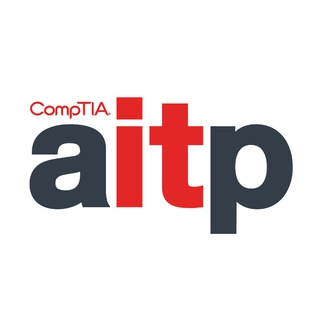Certified Community Association Manager (CCAM) is a professional certification in property management earned through the Minnesota Multi-Housing Association (MHA) or the California Association of Community Managers (CACM). Those certified as a CCAM are deemed by the association to have obtained a certain level of professional competence in the management and administration of common interest communities or developments (also called CIDs), which are generally townhome, condominium or homeowner associations or cooperatives.
Professional certification, trade certification, or professional designation, often called simply certification or qualification, is a designation earned by a person to assure qualification to perform a job or task. Not all certifications that use post-nominal letters are an acknowledgement of educational achievement, or an agency appointed to safeguard the public interest.

Santa Barbara City College (SBCC) is a public community college in Santa Barbara, California. It opened in 1909 and is located on a 74-acre (30 ha) campus.

The American Veterinary Medical Association (AVMA), founded in 1863, is a not-for-profit association representing more than 99,500 veterinarians in the US.
Property management is the operation, control, maintenance, and oversight of real estate and physical property. This can include residential, commercial, and land real estate. Management indicates the need for real estate to be cared for and monitored, with accountability for and attention to its useful life and condition. This is much akin to the role of management in any business.
A property manager or estate manager is a person or firm charged with operating a real estate property for a fee when the owner is unable to attend to such details personally or is not interested in doing so. The property may be individual title owned or owned under the sectional title, share block company owned, and may be registered for residential, commercial office, and retail or industrial use. In 2006, the Bureau of Labor Statistics Office of Occupational Statistics reported that there were 329,000 property managers employed in the United States, with the number expected to grow to by 50,000 by 2016.

An athletic trainer is a certified and licensed health care professional who practices in the field of sports medicine. Athletic training has been recognized by the American Medical Association (AMA) as an allied health care profession since 1990.
CCAM may refer to:

Environmental planning is the process of facilitating decision making to carry out land development with the consideration given to the natural environment, social, political, economic and governance factors and provides a holistic framework to achieve sustainable outcomes. A major goal of environmental planning is to create sustainable communities, which aim to conserve and protect undeveloped land.
The International Association of Emergency Managers (IAEM) is a non-profit organization, dedicated to promoting the profession of emergency management by working with its membership to promote the goals of saving lives and protecting property during emergencies and disasters.
CIM | Chartered Managers Canada is Canada's senior professional association, certification body and academic institute for managers and leaders.
The Association of Technology, Management and Applied Engineering (ATMAE) sets standards for academic program accreditation, personal certification and professional development for educators and industry professionals involved in integrating technology, leadership and design.
A student housing cooperative, also known as co-operative housing, is a housing cooperative for student members. Members live in alternative cooperative housing that they personally own and maintain. These houses are designed to lower housing costs while providing an educational and community environment for students to live and grow in. They are, in general, nonprofit, communal, and self-governing, with students pooling their monetary and personal resources to create a community style home. Many student housing cooperatives share operation and governing of the house. As with most cooperatives, student housing coops follow the Rochdale Principles and promote collaboration and community work done by the members for mutual benefit.

The National Court Reporters Association, or NCRA, is a US organization for the advancement of the profession of the court reporter, closed captioner, and realtime writer. The association holds annual conventions, seminars and forums, speed and real-time contests, and teachers' workshops to assist court reporters.
The American Association for Laboratory Animal Science (AALAS) is a 501(c)(3) nonprofit membership association, established in 1950 as a forum for the exchange of information and expertise in the care and use of laboratory animals. Membership consists of approximately 12,000 individual, institutional, commercial and affiliate members. The national office is located in Memphis, TN.
A Certified Resident Manager is a property management professional designation earned through the Minnesota Multi-Housing Association or the Resident Managers' Training Institute in Vancouver, British Columbia. Certified resident managers are deemed by the association to have obtained a certain level of professional competence in the management and administration of multi-unit residential housing.
COPC Inc., is a privately held management consulting company based in Winter Park, Florida that specializes in something it calls 'customer experience transformation'. COPC Inc. provides performance-improvement consulting, training, certification, and benchmarking. Clients of COPC Inc. include Apple, Microsoft, Sprint, HTC, Mattel, RBS, DiGi, Canal Digital, UWV, ToysRus, Datacom, Sitel, and Citigroup. COPC Inc. is well-known in the customer experience industry and many of the industry-associated organizations actively promote them.
The California Society of Municipal Finance Officers is a professional association of state, county, and local government finance officers in California. The California Society of Municipal Finance Officers is the statewide organization serving all California municipal finance professionals, an affiliate of the nationwide Government Finance Officers Association (GFOA). Membership is open to anyone in the State of California actively engaged in government finance in any city, county, or special district.

The Association of Information Technology Professionals (AITP) is a professional association that focuses on information technology education for business professionals. The group is a non-profit US-oriented group, but its activities are performed by 62 local chapters organized on a geographic basis, and 286 student chapters at college and universities.
The National Apartment Association (NAA) is a non-profit trade association in the United States of apartment communities, owners and vendors. These member companies are also part of NAA with their membership at the local level. Members represent the various facets of the multifamily housing industry: apartment owners, management executives, developers, builders, investors, property managers, leasing consultants, maintenance personnel, vendors and related business professionals throughout the United States and Canada. NAA has its headquarters in Arlington, VA. Robert Pinnegar currently serves as the organization's president and chief executive officer.
Master of Community Association Management (MCAM) is a professional certification in property management earned through the California Association of Community Managers (CACM). Those certified as an MCAM are deemed by the association to have earned a specialty certificate in a management specialization from CACM and have completed requirements which include; six (6) years of good standing as a CCAM, application process, three-part comprehensive assessment exam. These individuals demonstrate advanced working knowledge of professional competence in the management and administration of common interest developments, which are generally townhome, condominium or homeowner associations or cooperatives.